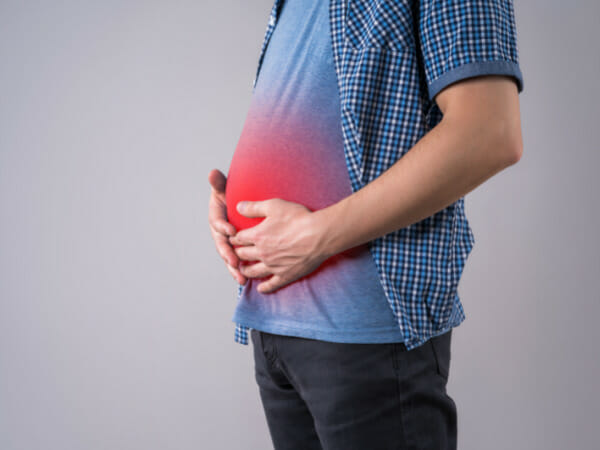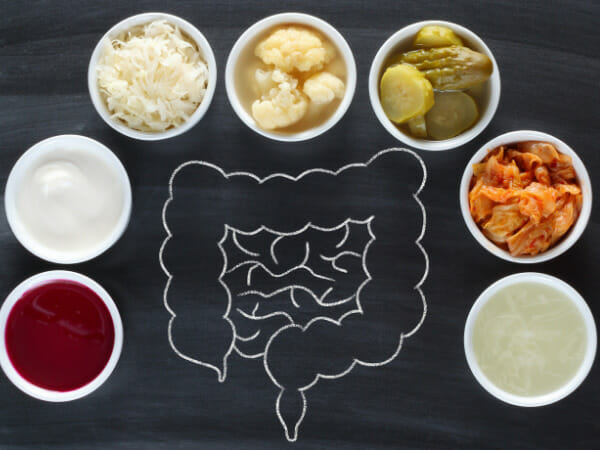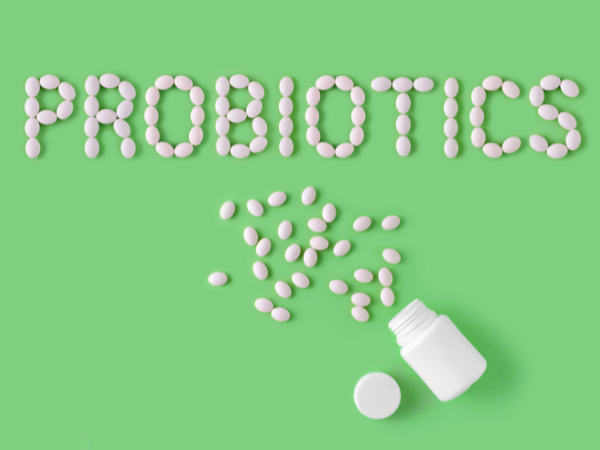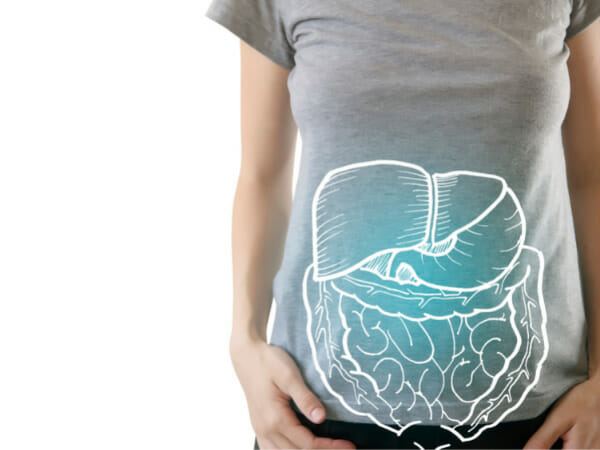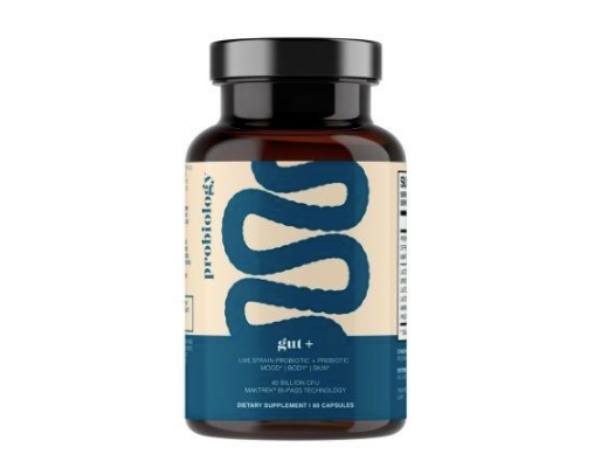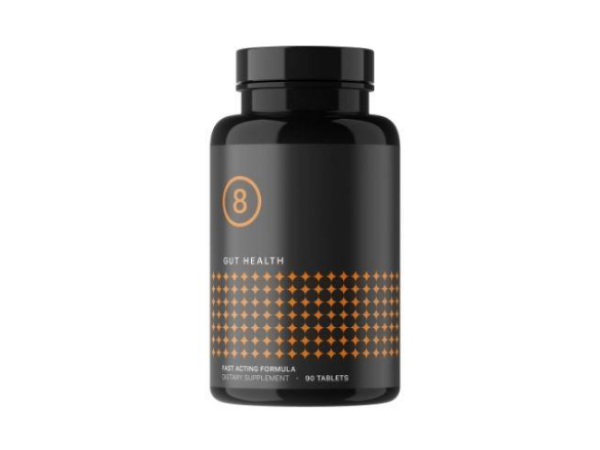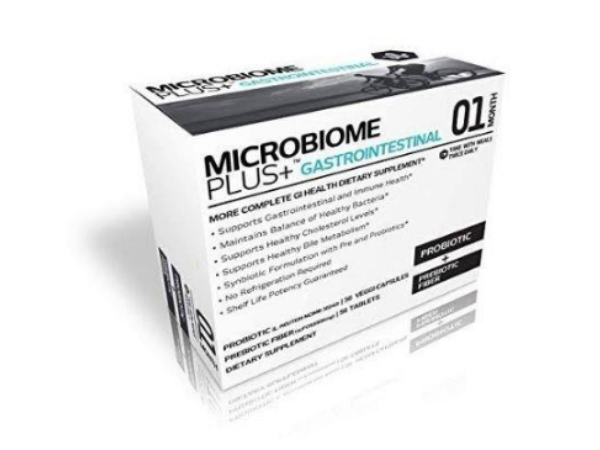Do Probiotics Help with Bloating?
Probiotics are tiny microorganisms that are said to have beneficial effects on the human body when consumed. Usually, probiotics improve digestive health. Alongside its action on the gut, they also serve to improve the cognitive health of the body, contributing to overall wellness and a more energetic body.
This guide contains all the information you need about the best probiotics for the gut and whether or how they might help with bloating. You will come across a systematic review of the bloating phenomenon in the body, what causes it, and how to reduce the symptoms associated with abdominal bloating and distension. In addition, this guide will answer your questions regarding gut health and how probiotics help with it.
The most popular probiotic product for bloating – is Probiology Gut+.
Getting to Know Your Digestive Health Better
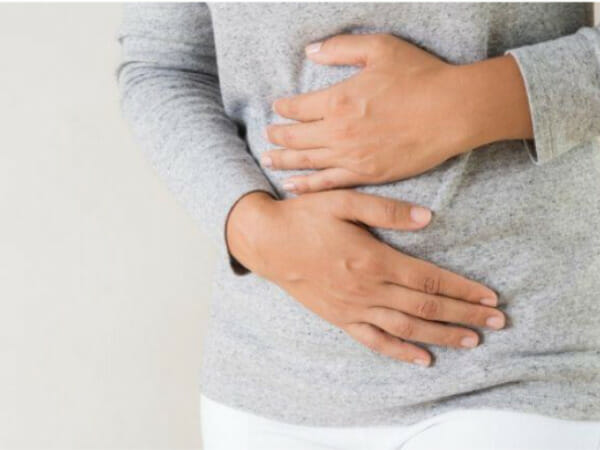
Before understanding how probiotics work, let’s first discuss how the digestive system works.
How does Bloating Normally Present?
Bloating comes with several symptoms, some of which are common, while others occur in rare cases. Below are symptoms of bloating:
● Flatulence
Passing gas is the most common presenting feature of abdominal bloating. The individual frequently passes wind or gas involuntarily. This becomes quite embarrassing for the affected person, especially in social gatherings.
● Stomach Pain
Abdominal bloating often have pain as the foremost presenting symptom. This pain can range from just a feeling of tightness, fullness, or pressure in the abdominal area to full-blown sharp pain. Therefore, the feeling has often been described as mildly uncomfortable to severely painful.
● Burping or Belching
You get an urge to burp to get rid of the excess gas that has been accumulated in the abdomen, causing the bloating. Moreover, this is an uncomfortable and embarrassing situation for the affected individual.
● Bloody Stool
One of the concerning symptoms of bloating includes blood in the stool. This is often associated with abdominal bloating due to Inflammatory Bowel Disease. A symptom like this should never be ignored and reported immediately to the doctor.
● Abdominal Distension
Abdominal distension occurs when gas accumulates in the abdomen. Since bloating results from gas accumulation, distension is one of its symptoms. This causes the size of the stomach to increase quite a large amount. It causes extreme discomfort to the patient.
● Noticeable Weight Loss
Since bloating creates a false sense of fullness in the body, the appetite decreases significantly. This decrease in appetite to the extent of anorexia results in unwanted and significant weight loss, which can also affect your overall mood.
● Heartburn
One of the common causes of bloating is indigestion. Heartburn is another common consequence of indigestion and bloating. This is a also a burning feeling deep in the chest.
● Nausea and Vomiting
Abdominal bloating is a condition that very commonly presents with nausea or vomiting. All the gas in the abdomen causing distension makes you feel like you want to vomit.
Common Etiologies Associated with Abdominal Bloating
You need to understand the reason behind bloating before making a plan to treat it. The following are the leading causes of abdominal distension:
● Swallowing too much Air
It might seem unlikely. But sometimes, while chewing gum or eating too fast, we swallow too much air. If you don’t pass the air, it may accumulate in the abdomen in the form of gas resulting in abdominal bloating.
● Constipation
Constipation can contribute to abdominal pain and bloating. The longer your stool stays in your colon, the more time bacteria have to ferment what’s there, resulting in more gas and bloating.
● Gas
A build-up of gas in the abdomen and intestines is among the most common causes of bloating. Bloating caused by gas can range from mild discomfort to severe intense pain. The feeling is similar to something trapped in the stomach. Gas can be due to:
1. Certain foods, including vegetables (Brassicas) such as broccoli, cabbage, and cauliflower. 2. Stomach infection 3. Chronic illnesses, such as Crohn’s disease (a chronic inflammatory bowel disease that affects the lining of the digestive tract) 4. Lactose Intolerance
In short, any of the above etiologies can result in excess gas production. Which leads to the uncomfortable symptoms of bloating.
● Gastroesophageal Reflux Disease (GERD)
Researchers believe that acid-reflux disease and abdominal bloating are two linked conditions. Sometimes, too much acid reflux triggers a reflex whereby the individual tries to relieve the feeling of heartburn by excessive belching. This, however, does more harm than good. During excessive belching, you swallow a large amount of air accumulating in the abdomen. This also leads to producing the symptoms of bloating. People with both conditions should adopt lifestyle modifications that reduce the risk factors for GERD and abdominal bloating. This further confirms the connection between the two diseases.
● Gynecological Disorders
Several gynecological conditions can result in abdominal bloating. The most common gynecological disorders with abdominal bloating and distension include ovarian cysts and uterine fibroids. Although uncommon, the most severe condition associated with bloating and distension is ovarian cancer, especially in postmenopausal women.
● Cyclic Premenstrual Bloating
The cyclic premenstrual bloating results from fluid retention, increased blood flow into the pelvis and slow gut motility. This is commonly part of PMS/PMT. These symptoms tend to resolve with the arrival of your period. Sometimes the prime disorder lies with a problem with the gastrointestinal tract, mainly if there is a change of bowel habit or the symptoms are not cyclic. Food intolerance may be at the heart of the issue. So, one of the symptoms of PMS might be bloating.
● Irritable Bowel Syndrome
Irritable Bowel Syndrome is an uncomfortable condition that presents with several gastrointestinal symptoms. One of the main features of IBS is abdominal bloating and distension.
Currently, there are two theories on how IBS cause bloating. The first one is bacterial in origin. According to it, IBS causes a disruption in the bacterial balance that makes the normal gut flora. It nurtures some species of bacteria that produce toxins in the form of gases. These gases, when accumulated, give rise to abdominal distension resulting in bloating.
The other theory states that people with IBS are less tolerable of gases. They have a reduced ability to pass gas. This makes them unable to get rid of excess gases and contributes to abdominal bloating.
● Pelvic Inflammatory Disease
Pelvic Inflammatory Disease (PID) leads to the infection of one or more upper reproductive organs. These may include the uterus, fallopian tubes, or ovaries. One of the first and most common presenting symptoms of PID include lower abdominal pain and bloating.
● Crohn’s Disease
Crohn’s Disease (CD) is an inflammatory bowel disease. One of the main features of its presentation is abdominal distension. In CD, food gets poorly absorbed by the small intestines. This leads to undigested food passing on to the large intestine. Here, the normal flora starts digesting the undigested food inadequately. In doing so, they produce more gases. The accumulation of these gases results in distension of the abdomen and abdominal bloating.
How can Probiotics Help with Gas and Bloating?
Abdominal bloating usually results from an imbalance of bacteria in the gut. Some conditions predispose the gastrointestinal tract to the overgrowth of some harmful bacteria. Pooling of these bad bacteria results in excessive gas production.
When indigestion and intake of food-producing gases are superimposed on this condition, it precipitates an attack of gut instability with abdominal bloating and distension. Also, one way of combating this bacterial overgrowth resulting in bloating is using probiotics.
Probiotics are living microorganisms that improve gastrointestinal health and overall health in general. Probiotics work by restoring the balance of the gut flora. In addition, it also contributes to bacterial organisms that play a very positive role in helping with digestion.
Probiotics use has been linked with significantly reduced abdominal bloating, cramping, and other symptoms associated with indigestion and gut incompetency.
In addition, by boosting the number and types of bacterial strains in the gut, probiotics help with the symptoms of bloating by reducing inflammation of the gut. It also improves the effective excretion of gases from the body.
A detailed analysis of about 35 different studies conducted on 3.425 people suffering from Irritable Bowel Syndrome (IBS) showed that probiotics significantly helped reduce the symptoms of bloating in these people.
Different Types of Probiotics Explained
With the ongoing expansive research on probiotics and their health benefits, it has become clear that using a combination of them reaps the most help.
Since every probiotic occupies a particular position in the body, it is unlikely that a single type can cater to various digestive insufficiencies. Therefore, using a combination of probiotics is the most recommended way of use by doctors and health professionals.
Below are some probiotics that have emerged for relieving abdominal bloating.
Bifidobacterium and Lactobacillus
Bifidobacterium and Lactobacillus, also known as Döderlein’s bacillus, are two essential acidic bacteria. The acidic environment these bacteria create discourages the growth of harmful bacteria in the gut and protects from the bloating that might have resulted had the microorganisms persisted. Moreover, they also have anti-inflammatory properties in the gut. Some of the help benefits of these bacteria include:
- These probiotics promote gastrointestinal tract function, the ability to support a healthy microbiome, and healthy immune system response.
- They work to reduce anxiety
- Also, they are beneficial in inflammatory and allergic conditions.
- They help with Inflammatory Bowel Disease.
- Plus, they are helpful for vaginal infections, tooth decay, urinary tract infections, and others.
- They reduce gas production, bacterial growth, and abdominal pain in the small intestine.
These probiotics have been used in various combinations to help with the symptoms of bloating.
Saccharomyces Boulardii
Unlike the typical probiotics, which are bacterial, Saccharomyces boulardii is the tropical strain of yeast. Its use has proven beneficial in several conditions, including reducing the symptoms of abdominal bloating. Some of its health benefits include
- Irritable Bowel Syndrome
- Inflammatory Bowel Disease
- Traveler’s diarrhea
- Recurrent Clostridium infection
So, do probiotics help with bloating? As you may have figured, it does indeed!
How to Find the Best Probiotic for Gas and Bloating?
While searching for a probiotic formulation that is best suited to your body and is the most effective in reducing the symptoms of gas and bloating, one should keep in mind the following:
Billion bacteria
The number of bacteria in a probiotic is denoted as CFU or Colony Forming Units. There is no consensus on the right amount of CFUs needed. However, research suggests that probiotics should contain at least 1-2 billion CFU for the products to have any effects.
Diverse strains
The gut contains billions of bacteria belonging to different strains. Getting only one type of bacteria from a probiotic supplement is not enough. Also, it would help if you had a probiotic that contains a variety of bacteria. These bacteria work to enhance each other’s actions to provide the best results.
Quality
Aim for quality products that are tested and recommended by others as well.
Research
Make sure the ingredients in the product supplement are backed by solid research.
How to Use Probiotics for Bloating?
It would help if you used probiotics along with an anti-inflammatory diet. When using probiotics for bloating, the essential strategy includes a diversity of high-quality probiotics. A combination of three probiotics is a good approach for bloating. As you have read previously in this article, most probiotics fall into three types of probiotics. So, it is often recommended to use one high-quality product from the three different probiotics.
When all the three probiotics are used together, the three work synergistically to improve gut health. Probiotics from all three types have been shown to help bloat. Moreover, the three probiotics can be referred to as a stool, which has three legs and each of the probiotics represents a single leg of a stool. If the stool has only one or two legs, it’s likely unstable. With the three legs, the stool can stay upright.
Best Probiotics for Gas and Bloating
The following section is about some of the best probiotic formulations doctors recommend. These have been tried and tested by many.
1. Probiology Gut+
The probiology gut is a unique formula with 40 billion CFUs of probiotics, including Lactobacillus, Bifidobacterium, and the Streptococcus species.
Packed with numerous health benefits, the pro biology formula is especially helpful in improving women’s gut health. Some of its health benefits include helping with weight management, reducing stress levels, promoting healthier-looking skin, improving vaginal health, and reducing the symptoms of bloating.
These packages are budget-friendly as well as suited to the customer’s use. Also, their monthly package includes a bottle containing 60 capsules for a mere price of $1.20 per day. Moreover, they also offer a 60-day money-back guarantee if you haven’t achieved 100% satisfaction with the product.
You Can Order Probiology Gut+ From Their Website!
2. Biotics 8
Biotics 8 is a unique blend of nutrients, probiotics, and digestive fiber. When used in daily doses, biotics 8 has numerous benefits, particularly on gut health and mood. Biotics 8 contains some of the most effective probiotics like Lactobacillus, Bifidobacterium, Saccharomyces, and Streptococci. In addition, it also contains essential vitamins and amino acids that make it an all-in-one package for your health. This specially designed formula improves men’s health.
The Biotics 8 comes in bottles of 60 capsules at an affordable price of $1.9 per day. It boasts 100% customer satisfaction and ensures a money-back guarantee in case of any complaints regarding the product, making it a customer-friendly probiotic formula.
You Can Order Biotics 8 From Its Website!
3. Microbiome PLUS
Microbiome PLUS is a well-researched product having a very beneficial probiotic combination. The positive results come from numerous studies and have made it a doctor’s recommended formula.
Related Articles
Studies have well-proven its effect on gut health and other aspects of health after experts subjected them to rigorous scientific testing and analysis. It contains Lactobacillus reuteri NCIMB 30242 3.5 billion CFU, a research-proven probiotic strain. In addition, it also has scFOS Tablet: scFOS (Short-chain fructooligosaccharides) 600mg, which is the main prebiotic in the formula.
Each pack costs $37.99. You can avail a 24% and 28% discount if you bulk order 3 and 6 bottles. The company also offers a 1-year money-back guarantee on their product.
You Can Buy the Product From the Official Website!
Final Thoughts
The best probiotics for gas and bloating help tackle abdominal and gut problems like bloating and gas. From the above discussion, one can easily understand how probiotics play a crucial, pivotal role in combating gas and bloating problems. All major-related information regarding the best probiotics for gas and bloating can be found here.

